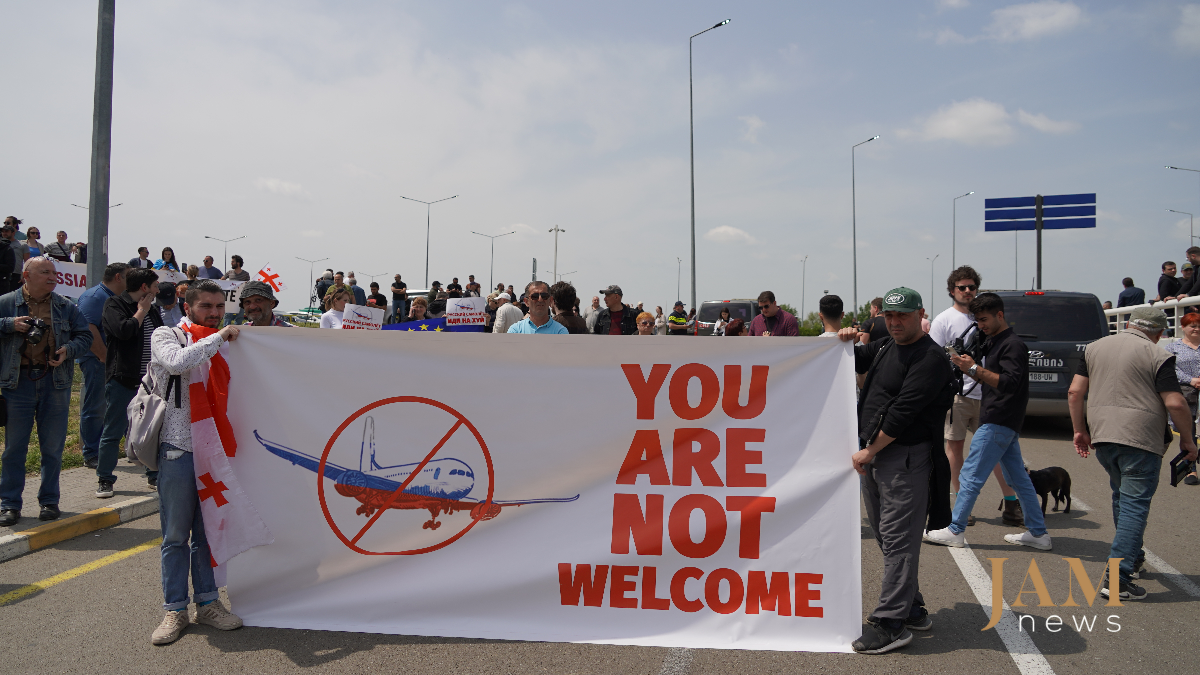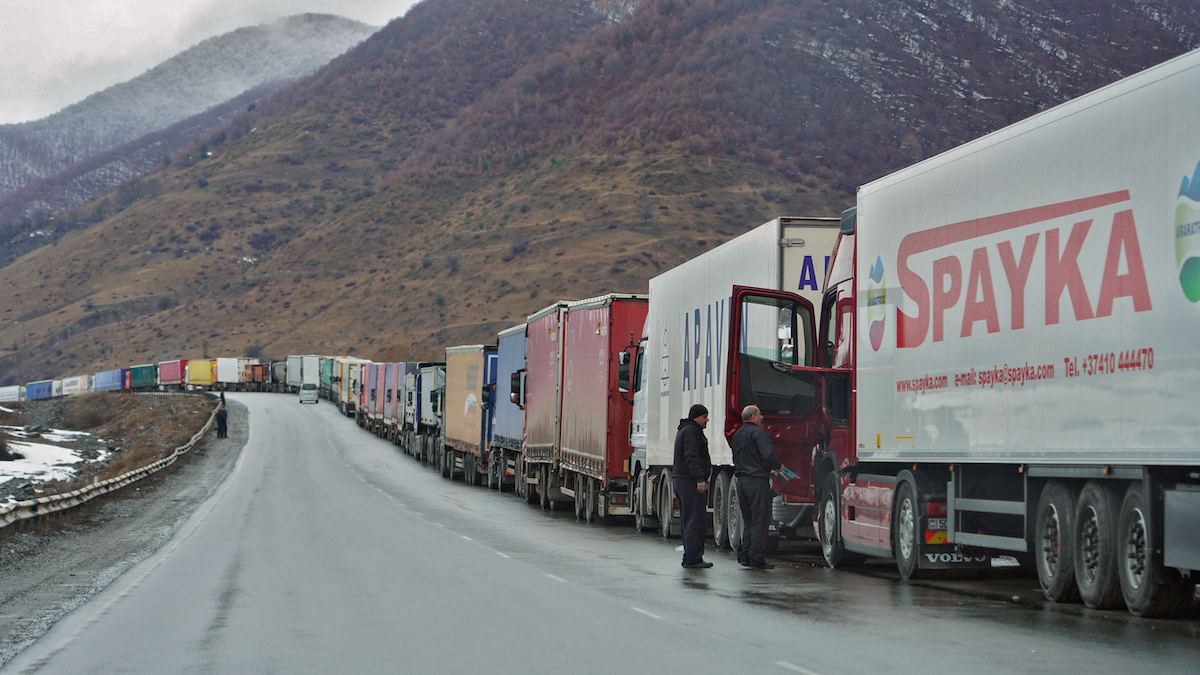From microchips to cars: how Russia circumvents sanctions with the help of neighbouring countries
How Russia circumvents sanctions
Since the beginning of Russia’s full-scale invasion of Ukraine, Western countries have imposed and regularly expand sanctions against Russia and Belarus, which supported its aggression. Thereby the West is trying to weaken the economies of the countries and stop supplies of equipment and dual-use goods that the aggressor country can use to produce military equipment.
Despite the bans, Russia manages to circumvent the sanctions with the help of neighbouring countries.
Kyrgyzstan
After the start of the invasion, imports of dual-use goods from Kyrgyzstan to Russia, in particular electronic components from US manufacturers Texas Instruments and Analog Devices, increased, Radio Azattyk journalists found out. According to the publication, the companies involved in the sanctions circumvention scheme have in the past supplied products for the Russian military industry.
According to UN trade data, Kyrgyzstan did not import any parts for aeroplanes, helicopters and drones in 2021. But in 2022, the country imported $3.5 million worth of such products – mostly from the United States – and exported $1.5 million worth to Russia.
Politicians in the country regularly say that the authorities are making every effort to prevent the export of sanctioned goods to Russia. For example, the State Committee for National Security of Kyrgyzstan stated that “neither the Kyrgyz state itself nor any state structures and companies are involved” in violating Western sanctions imposed against Russia.
However, in practice, the country’s National Statistical Committee has started to hide data on exports, journalists from Kloop and the Organised Crime and Corruption Research Centre (OCCRP) discovered. Often, export and import statistics are usually broken down into specific categories labelled with a ten-digit code.
For example, the code 3603400001 identifies “non-electric detonating capsules.” The first four digits of this code – 3603 – denote a group of goods that includes a wide variety of primers, fuses and detonators, including flame and detonating cords, shock and detonating primers, electric detonators, etc.
Previously, the National Statistics Committee broke down the information by four-digit and ten-digit codes. Now the agency publishes only the first four digits of the code, which give only a general idea of the categories of goods, but not the products themselves. The agency explained the change as “optimization” and “internal decisions”.
For example, Kas Impuls (the first detonator plant in Central Asia) shipped 661,000 detonators to Russia in January-April 20223. The plant itself produced at least 19.6 thousand of them, others may have been shipped from China. The recipient was ORICA CIS, part of the Evoblast group, a Russian manufacturer of industrial explosives and initiation systems for the mining and construction industries.
None of the deliveries by Kas Impuls are reflected in the official statistics of Kyrgyzstan. It is difficult to estimate how many more such supplies have “disappeared” from the reports.
As of July 2023, five companies registered in Kyrgyzstan fell under U.S. sanctions for supporting the military sector and supplying Russia with dual-use goods:
- Tro.Ya – for supporting Russia’s military sector.
- RM Design and Development – has made hundreds of shipments of semiconductors, electronic integrated circuits and capacitors.
- “GTME Technologies” – deemed by the U.S. Department of the Treasury to have supplied tantalum capacitors and electronic integrated circuits to Russia.
- “Progress Leader” – supplied a number of goods to the Russian company Siaisi, which mainly trades in electronic and optical equipment and computers.
- “Cargoline” – supplied $1 million worth of sub-sanctioned goods to Russia. In particular, aircraft parts for Boeing and Airbus.
Kazakhstan
In April and June, US officials (Assistant Secretary of the Treasury and Sanctions Coordinator of the US Department of State) stated that the risks of secondary sanctions against Kazakh companies and banks have increased.
The Kazakh authorities, in turn, regularly state that the country has a ban on exports of military goods since 2022, and exports of dual-use products require special certification.
Another obstacle to the supply of sanctioned goods to the Russian Federation, the Kazakh authorities call the automated system of online tracking of the arrival and movement of imported goods, which started on 1 April 2023.
To see how this system works, Respublika journalists travelled to West Kazakhstan Oblast, which borders five Russian regions. At the largest checkpoint, Syrym, the journalists talked to drivers and employees.
The chief on duty said that there is no scanner at the checkpoint to check vehicles so they are checked selectively. Truckers, who stand at the checkpoint for several days, reported corruption and complained that lorries are allowed through only “on a call”.
According to the editorial source, who supplies Kazakhstan with products from China, there is a special “green” list of companies whose vehicles are not inspected: “The companies on the list are constantly changing, so it is difficult to trace them. The list is made, he said, by “those at the top”.
You can learn more about what is happening on the land border between Russia and Kazakhstan in this video report.
Overall, in 2022 alone, trade turnover between Kazakhstan and Russia grew by two billion dollars to 28 billion dollars. Radio Liberty journalists, having studied the data on deliveries noted that Kazakhstan can participate in re-exporting to Russia, for example, computers from the European Union.
Thus, in 2022, the supply of computers to Kazakhstan increased sevenfold to $1.2 billion. 310 million accounted for imports from the EU. Exports of these products from Kazakhstan to Russia in the same period rose to $300 million, which is 2,300 times more than in the previous year.
The export of dual-use goods to Russia was also denied by President Kasym-Jomart Tokayev, noting that Kazakhstan is committed to WTO norms and follows all the rules of the international market.
However, Radio Azattyk journalists learnt that Kazakhstan’s EltexAlatau supplies Analog Devices transceivers to Russia. For example, they were found in the T-72B3M tank used by Russia in Ukraine. Elem Group has supplied Russia with at least 300 batches of electronics, including dual-purpose electronics.
Kazakh-registered firms are also involved in schemes to supply chips and drones to Russia. In May 2023, journalists from Kazakhstan’s Vlast, the Russian media outlet Important Stories, and the international consortium OCCRP published an investigation into how drones and chips were being sent to Russia through Kazakhstan via a network of intermediaries.
For example, the Russian firm Stack imports components for the production of electronics for the FSB, intelligence and the Ministry of Defence. Its supplier is Da Group 22 from Kazakhstan, which buys chips from Germany’s Elix-st. The Kazakh and German firms are owned by a family of Russian businessmen surnamed Chernet.
One of the main Russian sellers of DJI drones is the company Nebesnaya Mekhanika. It receives UAVs from Kazakhstan’s Aspan Arba. “Aspan Arba has existed since April 2022. Its founder is Ilya Golberg, the owner of Nebesnaya Mekhanika.
The State Revenue Committee did not tell reporters how many one-day firms supplying sanctioned goods to Russia appeared in Kazakhstan and how many of them the authorities managed to stop. The agency only reported that in the first six months of 2023, Kazakhstan prevented 276 attempts to export dual-use goods to Russia.
Georgia
Since the start of the invasion, the Georgian government has maintained that not only will the country not impose its own sanctions against Russia, but also that it will not join Western sanctions. At the same time, the Georgian president and individual agencies emphasize that the country will comply with the sanctions regime and will not help anyone to avoid them.
According to the Transparency International-Georgia report, 17,000 Russian companies were registered in Georgia in 2022, more than half of them appeared after the war started.
In 2023, Russia has become Georgia’s second largest trading partner in terms of imports and third largest in terms of exports. In particular, for 2022, Russian imports to the country will increase by 79 per cent and exports to Russia by seven per cent.
In June 2023, James O’Brien, head of the US State Department’s Office of Sanctions Coordination, David O’Sullivan, the EU’s Special Representative for Sanctions, and Kumar Iyer, a representative of the UK’s Office of Foreign Affairs, paid an official visit to Tbilisi.
At the press conference, O’Sullivan expressed the EU’s disappointment that Georgia did not join the sanctions against Russia. Given the geopolitical context, though, they “realize that”:
“A country seeking to join the European Union has to be consistent with, among other things, our foreign policy. But we also assess the specific situation Georgia is in from an economic and geopolitical point of view. Given this context in which it has to trade with Russia, we understand why Georgia is not joining the sanctions. And we have seen in the last two days that the Georgian government is very serious about making sure that the country is not used as a platform to circumvent sanctions,” JAMnews quoted him as saying.
Nevertheless, Georgia’s Western partners were concerned about the resumption of direct air links with Russia and urged Georgia to more carefully control goods that would cross the air border.
Turkey
Since the start of the invasion, this country has been a “mediator” of the war. President Recep Erdogan participated in negotiations on a grain deal. The commanders of the Azov regiment, who were released from Russian captivity, were brought there.
However, companies registered in the country are helping Russia buy aircraft in Europe using a Turkish front firm.
In addition, Turkey has become “a lifeblood for the Russian economy”: trade between the countries has increased by about 93 per cent since the invasion began, the Atlantic Council noted in its report.
The Atlantic Council notes that Turkey sold Russia integrated circuits and semiconductors that could be used for weapons production. “From March 2022 to March 2023, Turkish electronics exports to Russia jumped by about 85 per cent,” the report said, as quoted by Voice of America.
Ankara denies exporting goods to Russia that could have military applications.
Belarus
Due to complicity in the war against Ukraine and mass repression, the US, EU and UK have imposed and regularly extend sanctions against both politically important people in Belarus and state-affiliated companies as early as 2022.
However, even in these conditions, Belarus can help Russia circumvent sanctions.
Thus, according to Eurostat, in early 2023 the supply of goods from the EU to Belarus increased by 64.5 per cent compared to early 2022. The most in-demand group of goods was “machinery and transport equipment. Belarus paid €1.14 billion for them. This is twice as much as in January-April 2022 (€0.56 billion), noted the journalists of “Euroradio.”
According to the editorial board, it’s primarily about the supply of passenger cars from the EU to Belarus. The peak and volumes of deliveries coincide with the collapse of similar goods from the EU to Russia.
Yulia Krasnikova, Mediaset





















